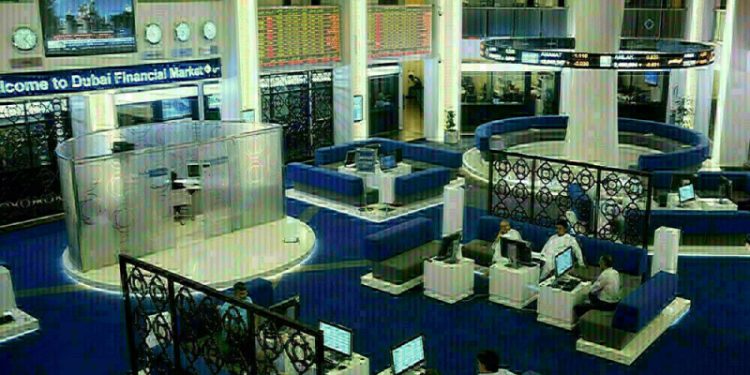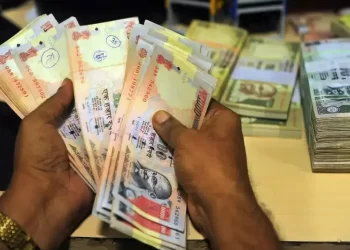Stock markets in the Gulf ended mixed on Monday ahead of third-quarter earnings and with the region still on high alert for Israel to retaliate against Iran for an Oct. 1 barrage of missiles launched in response to Israeli actions in Lebanon.
Saudi Arabia’s benchmark index dropped 0.9%, ACWA Power Co declined 7.4% and Al Taiseer Group fell 0.6%.
In Qatar, the index lost 0.2%, hit by a 0.6% fall in petrochemical maker Industries Qatar.
Oil prices – a key factor for the Gulf’s financial markets – declined over 2%, wiping out all of last week’s gains, as China’s stimulus plans failed to inspire investor confidence and the country’s oil imports fell for the fifth month, stoking concern about fuel demand.
The markets were also depressed by worries that the possibility of an Israeli response to Iran’s Oct. 1 missile attack could disrupt oil production, though the U.S. has cautioned Israel against targeting Iranian energy infrastructure.
Lower prices and disruptions to crude exports impact fiscal balances in countries reliant on oil income.
Most Gulf markets ease on Mideast conflict; Saudi gains
Dubai’s main share index gained 0.3%, with top lender Emirates NBD rising 2.3%.
The Abu Dhabi index finished 0.5% higher.
The Dubai stock market continued its rebound, maintaining a healthy bullish trend, which could be further supported by solid earnings if the results are confirmed, said George Pavel General Manager at Capex.com.
According to Pavel, regional geopolitical tensions were less impactful on UAE markets, although they did not avoid the risks entirely.
Outside the Gulf, Egypt’s blue-chip index advanced 1.1%, ending three sessions of losses, led by a 1% rise in Commercial International Bank.
------------------------------------- SAUDI ARABIA fell 0.9% to 11,960 ABU DHABI rose 0.5% to 9,303 DUBAI down 0.3% to 4,455 QATAR lost 0.2% to 10,478 EGYPT up 1.1% to 30,273 BAHRAIN eased 0.2% to 1,995 OMAN gained 0.8% to 4,803 KUWAIT lost 0.1% to 7,565 -------------------------------------
Stock markets in the Gulf ended mixed on Monday ahead of third-quarter earnings and with the region still on high alert for Israel to retaliate against Iran for an Oct. 1 barrage of missiles launched in response to Israeli actions in Lebanon.
Saudi Arabia’s benchmark index dropped 0.9%, ACWA Power Co declined 7.4% and Al Taiseer Group fell 0.6%.
In Qatar, the index lost 0.2%, hit by a 0.6% fall in petrochemical maker Industries Qatar.
Oil prices – a key factor for the Gulf’s financial markets – declined over 2%, wiping out all of last week’s gains, as China’s stimulus plans failed to inspire investor confidence and the country’s oil imports fell for the fifth month, stoking concern about fuel demand.
The markets were also depressed by worries that the possibility of an Israeli response to Iran’s Oct. 1 missile attack could disrupt oil production, though the U.S. has cautioned Israel against targeting Iranian energy infrastructure.
Lower prices and disruptions to crude exports impact fiscal balances in countries reliant on oil income.
Most Gulf markets ease on Mideast conflict; Saudi gains
Dubai’s main share index gained 0.3%, with top lender Emirates NBD rising 2.3%.
The Abu Dhabi index finished 0.5% higher.
The Dubai stock market continued its rebound, maintaining a healthy bullish trend, which could be further supported by solid earnings if the results are confirmed, said George Pavel General Manager at Capex.com.
According to Pavel, regional geopolitical tensions were less impactful on UAE markets, although they did not avoid the risks entirely.
Outside the Gulf, Egypt’s blue-chip index advanced 1.1%, ending three sessions of losses, led by a 1% rise in Commercial International Bank.
------------------------------------- SAUDI ARABIA fell 0.9% to 11,960 ABU DHABI rose 0.5% to 9,303 DUBAI down 0.3% to 4,455 QATAR lost 0.2% to 10,478 EGYPT up 1.1% to 30,273 BAHRAIN eased 0.2% to 1,995 OMAN gained 0.8% to 4,803 KUWAIT lost 0.1% to 7,565 -------------------------------------









